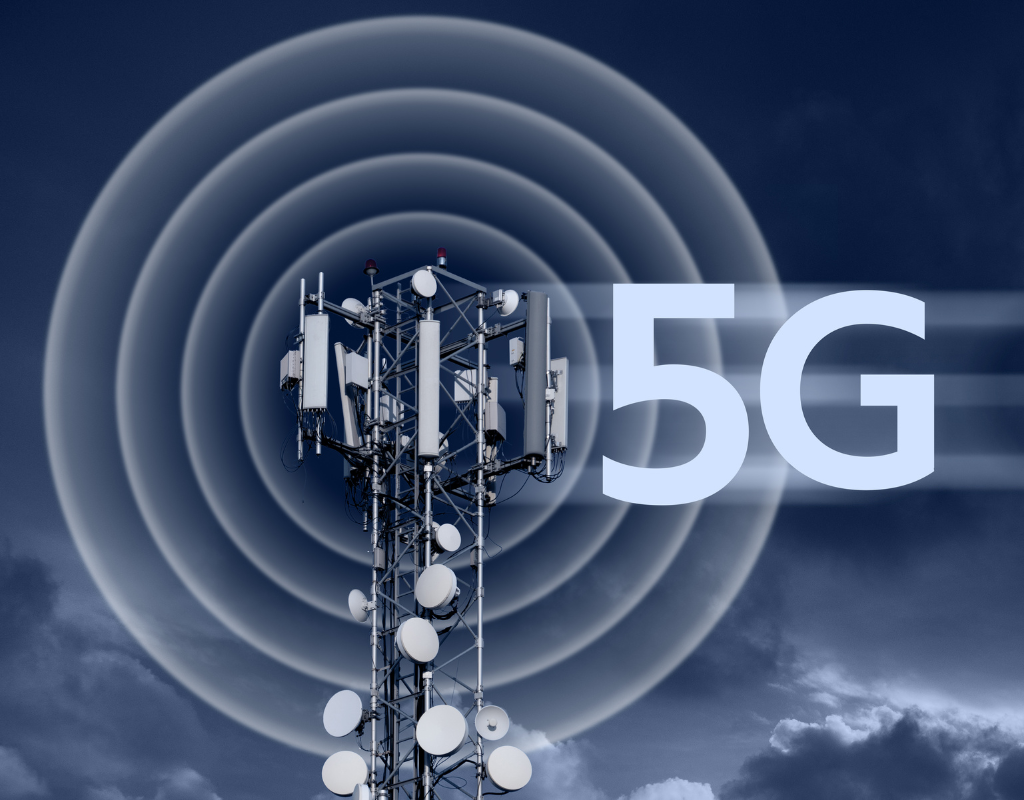What are the uses of home internet?
An internet connection at home provides internet access to all the devices and appliances you own. Your family can connect their smartphones, tablets, computers, and other devices such as smart watches, home assistants and more to your home internet. Nowadays, Televisions, refrigerators and other heavy appliances too can be connected to the internet.
With the help of our home internet, we can watch movies and videos on our devices or Televisions, download files, play music, share pictures and videos, playing mobile or console games, browse social media, do online shopping and a lot more.
Most home internet is dispensed through Wi-Fi routers which are connected with a wired internet connection. Wired internet connections are delivered to our homes via fiber-optic broadband cables, coaxial cables, or other forms of twisted pair cables. Our home internet connections are often bought from ISPs (Internet Service Providers) who install the cables that bring internet access to our doorstep.
Now that we have a basic understanding of home internet, its uses and how it is delivered to us, let us try and learn some things about 5G before we explore the potential of 5G for home internet in the future.
What is 5G?
5G is the fifth generation of wireless mobile network. It is latest form of wireless network that is touted to replace the previous generation of mobile network technology – 4G LTE (Long Term Evolution). Just as 4G replaced 3G and so on, it also brought in new services and features for consumers to enhance their internet experience and make new things possible. Similarly, 5G is expected to revolutionize the way we use the internet and drive innovation in all levels of society.
Peak internet speeds that are several times higher than 4G LTE, super-low latency, dense coverage, and high capacity of connected devices are just some of the key benefits that 5G technology can offer. The benefits of 5G are not only going to be felt by consumers but also by businesses and telecom operators.
Can 5G network be used for home internet?
Yes, 5G home internet services are possible and are currently being offered by many telecom operators and internet providers in foreign countries. In India, 5G home internet has still not gained widespread availability. However, this is an ever-changing dynamic situation, and many providers are working hard to deliver 5G Wi-Fi services to their customers’ home.

The 5G home internet works on a similar concept as wired broadband and cable internet services. With wired broadband services, the network is delivered to your Wi-Fi router through a cable, and the Wi-Fi router dispenses it to all your devices and appliances.
In the case of 5G home Wi-Fi, a similar device can be placed inside your home that connects your devices and appliances to the internet. This device however does not require any wires, cables, installation, and any other hassles. Since 5G is a wireless network technology, it has no necessity for wires and cables to reach your home.
A single device that you can plug in, turn on, and use as a Wi-Fi and Internet Dongle hybrid. Most 5G home internet devices do not contain 5G SIM Cards as was the case with 4G dongles and other internet access devices available in India and other countries.
You get superfast internet speeds and all the benefits that 5G network can offer without any wires and cables prohibiting the movement of your ‘router’ from one room to another. Of course, this wireless 5G Wi-Fi connection can be used in your office, store, clinic, or café as well.
Since it is a wireless solution, the maintenance, software updates and troubleshooting can all be done remotely without requiring a visit from a certified technician. This can help alleviate problems and find solutions quickly, saving time and maintenance costs for both parties.
Can wireless 5G home internet offer the same speed as wired broadband connection?
Yes, 5G does offer internet speeds that are higher than most broadband connections or at least match up to most regular broadband connection internet speeds. However, the consistency and reliability of the speed could be the determining factor between 5G internet for home and broadband.
Since broadband connections are delivered to your doorstep through a cable and connected to your Wi-Fi router, there are few moments when any fluctuations occur to affect the internet speed.
5G on the other hand is a wireless network connection, and if the network reception is poor in your location – you will not be able to experience the best that 5G has to offer. 5G may be lightning fast but if you do not receive the wireless signal, it has no benefits to offer.
What are the disadvantages of 5G internet for home?
As mentioned above, 5G internet for home is an excellent proposition when the conditions are just right. If you are receiving a strong signal, your 5G home internet device can deliver all the benefits that 5G has to offer like peak internet speeds, low latency and so on.

Now if your signal is weak on account of living a bit further away from the 5G cell tower, you may not be able to receive the best of what 5G has to offer.
If there are disruptions of any kind such as intense winds, heavy rains or any other obstructions that prevent the signal from reaching your 5G home internet device – you may experience some difficulties with your 5G network.
For wired broadband connections on the other hand, disruptions are hard to come by. There are few factors that can disrupt the services for a wired connection. Wired broadband services are not affected by rain or winds and delivers consistent service. The quality of this service depends on your internet provider, but fluctuations are very rare.
Will 5G home internet be more expensive than broadband internet?
In other foreign countries, major telecom operators that are currently offering 5G home internet services are clubbing many benefits and offers with their plans and packages. Telecom operators are offering these deals as an incentive to encourage their customers to switch to 5G technology. Some operators and internet providers abroad are even offering to pay their customers’ early contract termination fees from their current internet providers to get them onboard their service as soon as possible.
One way these low prices and exciting deals make sense is that providing 5G services is beneficial to the operator as well. It saves them from ancillary cost of delivering the internet to your doorstep, and in return, they are happy to allow you a share of those savings by lowering your internet prices.
As the availability of 5G network gradually increases in more parts of the country and the world, 5G home internet providers will be able to improve their service and offer great value-for-money to their customers.
5G home internet is expected to be significantly cost-effective as compared to wired broadband service. The only caveat is that 5G is an emerging technology with some creases that will require ironing out whereas broadband is an established technology with a robust infrastructure and reputation in place already.
Are there any restrictions on using 5G home internet?
Some 5G internet for home providers in foreign countries have placed generic restrictions on the usage to protect the bandwidth for other users and their devices. In order to avoid congestion on the network, some restrictions have been placed on automated activities that require heavy data consumption.
If a provider is offering tier-based pricing and services, there could be some inconsistencies in the speed received by different customers. However, currently there are none such tier-based pricing options being offered to the best of our knowledge.
Can 5G home internet ever be a viable option?
Yes, in the near future 5G home internet connections will be a viable option for consumers and there will be an incentive for many to make the switch from broadband. This is possible only when 5G deployment in densely populated urban areas and other remote areas of the country are able to receive a strong 5G network reception.
5G can be deployed with the help of small cells and cell towers unlike its predecessors. As smart cities slowly emerge, smart street infrastructure and furniture could also be more widely available for the deployment of 5G small cells. This could tackle any network reception issues that could disrupt 5G home internet services. Until then, telecom operators and internet providers in India will need to build a robust network infrastructure that delivers 5G connectivity to every part of the country.
5G home internet services are possible and are currently being offered by many telecom operators and internet providers in foreign countries. In India, 5G home internet has still not gained widespread availability, but this is an ever-changing dynamic situation, and many providers are working hard to deliver 5G Wi-Fi services to their customers’ homes.
The 5G home internet works on a similar concept as wired broadband and cable internet services. With wired broadband services, the network is delivered to your Wi-Fi router through a cable, and the Wi-Fi router dispenses it to all your devices and appliances.
In the case of 5G home Wi-Fi, a similar device can be placed inside your home that connects your devices and appliances to the internet. This device, however, does not require any wires, cables, installation, or any other hassles. Since 5G is a wireless network technology, it has no necessity for wires and cables to reach your home.
A single device that you can plug in, turn on, and use as a Wi-Fi and Internet Dongle hybrid. Most 5G home internet devices do not contain 5G SIM Cards as was the case with 4G dongles and other internet access devices available in India and other countries.

You get super-fast internet speeds and all the benefits that 5G network can offer without any wires and cables prohibiting the movement of your ‘router’ from one room to another. Of course, this wireless 5G Wi-Fi connection can be used in your office, store, clinic, or café as well.
One of the biggest benefits of using 5G for home internet is that it can provide a more consistent and stable connection. Unlike traditional broadband services, which can be impacted by a range of factors such as network congestion and weather conditions, 5G is designed to provide a more stable connection. This is because 5G uses a combination of low and high-frequency radio waves, which allows for greater network capacity and more efficient use of spectrum. This, in turn, reduces the impact of network congestion and provides a more consistent connection for users.
Another advantage of using 5G for home internet is that it has the potential to provide more flexible and customizable service options. For example, 5G providers may offer different packages and pricing options that cater to different needs, such as heavy data usage, multiple devices, and high-speed internet. This could be particularly beneficial for households that require a fast and reliable connection for gaming, streaming, and working from home.
One of the biggest challenges of using 5G for home internet is that it requires the deployment of a significant amount of new infrastructure. This includes the deployment of 5G small cells, which can be expensive to install and maintain. There is also the challenge of ensuring that 5G infrastructure is deployed in a way that does not impact the quality of life for local communities. For example, there may be concerns about the visual impact of 5G small cells, or concerns about the potential health impacts of 5G radio waves.
Despite these challenges, the use of 5G for home internet is expected to grow rapidly in the coming years. This is because 5G has the potential to provide a faster and more reliable internet connection that is comparable to traditional home broadband services. In addition, 5G is expected to drive innovation and new opportunities in a range of areas, such as virtual reality, the Internet of Things, and connected homes.
Conclusion
5G has the potential to be used as home internet in the future and is already being offered by some telecom operators and internet providers in some countries. The advantages of 5G home internet include superfast speeds, low latency, and the convenience of not having to worry about wires and cables. However, there are also disadvantages to 5G home internet, such as a potential loss of speed and reliability if the signal is weak. Whether or not 5G will replace traditional broadband as the main form of home internet remains to be seen, but it is likely that it will play a role in shaping the future of home internet connectivity.
To Read More Tech Blogs Visit: Technical Nick

















